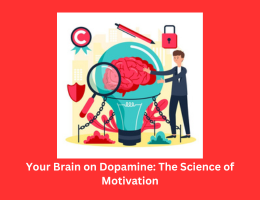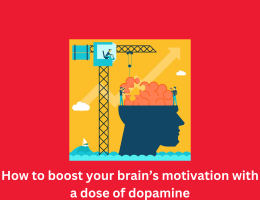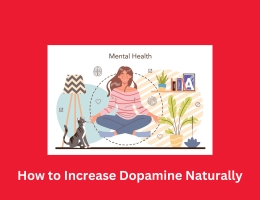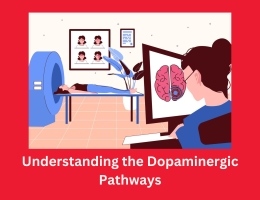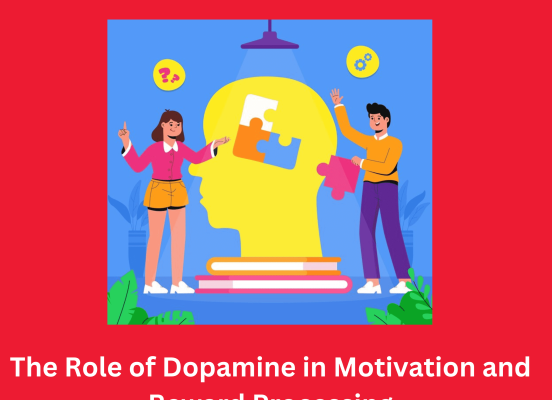
The Role of Dopamine in Motivation and Reward Processing
- By admin --
- Wednesday, 13 Mar, 2024
In the tangled dating among motivation and praise processing in the human mind, dopamine performs a essential position frequently called the “sense-suitable” neurotransmitter. This neurotransmitter plays a crucial role within the manage of numerous cognitive and behavioral functions which include motivation, reward, reinforcement, pleasure and mastering. It is usually produced with the aid of the dopaminergic neurons of the midbrain. Comprehending the complex pathways with the aid of which dopamine impacts motivation and praise processing is crucial for clarifying many factors of human behavior and developing efficacious remedy plans for situations which consist of dependency, despair, and motivational troubles.
Dopamine is launched from dopaminergic neurons in response to salient stimuli or choices, this is the manner it first will become involved in motivation and reward processing. These stimuli can either be extrinsic—via example, acquiring some rewards or feeling a few pride in social interactions—or intrinsic,—going for a certain target. Dopamine is launched into many questioning areas, which includes the ventral tegmental vicinity (VTA), prefrontal cortex, and nucleus accumbens. This release of dopamine acts as a essential signalling mechanism that encourages the pursuit of useful consequences and improves behaviour.
When you think about the role of dopamine in motivation, one essential thing that you need to know is reinforcement learning. Dopamine neurons have phasic behaviour, showing firing in response to sudden rewards or beneficial effects and lowering activity in response to unanticipated rewards or unfavourable effects. This hobby instance uses belief to talk the discrepancy between anticipated and actual results, encode prediction mistakes, and manual future behaviour to maximum praise fulfillment. In essence, dopamine serves as a critical neural signal that lets in human beings studies from experience and alter their behavior because of this to acquire preferred effects.
Furthermore, dopamine influences motivation in ways that go beyond simple reward processing, including cause-directed behaviour and the persistence of effort across time. Dopamine signalling has been connected to the patience and sturdiness of extremely good conduct, even inside the face of stressful occasions or delays in reward shipping, according to research. People with Parkinson's ailment or addiction issues, for instance, who have dysregulated dopamine signalling, regularly have motivation deficiencies, which are marked by means of reduced enthusiasm, apathy, and motive-directed interest.
The mesolimbic dopamine pathway, connecting the VTA to the nucleus accumbens and high-quality limbic structures, is mainly implicated inside the processing of reward-related stimuli and the technology of endorsed behavior. Activation of this pathway has been associated with emotions of satisfaction and reinforcement, the use of humans to are trying to find out profitable reminiscences and have interaction in behaviors which might be related to superb consequences. A variety of intellectual fitness problems, like as dependancy, hopelessness, and schizophrenia, were related to malfunctions on this pathway, underscoring the essential function dopamine performs in controlling motivational moods and emotional well-being.
Additionally, to integrate cognitive and motivational procedures, the prefrontal cortex—part of the mind involved in govt activities inclusive of making plans, purpose-putting, and selection-making—interacts carefully with dopaminergic pathways. In order to exercising pinnacle-down control over influenced behaviour, dopamine signalling within the prefrontal cortex is essential. This manage allows humans to prioritise dreams, restrain impulsive behaviour, and hold attention and attempt on long-term objectives. Deficits in motivation and executive dysfunction visible in plenty of neuropsychiatric ailments were related to abnormalities in this cortical–subcortical network.
Dopamine is worried in ugly motivation and punishment processing similarly to encouraging approach behaviour this is toward treasured stimuli. Research has shown that dopamine neurons at the moment are capable of react no longer simply to wonderful reinforcement however additionally to bad consequences or consequences, indicating that ugly criticisms ought to be prevented or at the least lessened. In disorders like hysterical troubles and dependancy, wherein men and women might also showcase heightened sensitivity to dreadful stimuli or difficulties fending off maladaptive behaviours notwithstanding lousy outcomes, dysregulation of dopamine signalling in unpleasant settings has been linked.
The complicated interactions among praise processing, motivation, and dopamine emphasise how crucial it's far to take man or woman variations and environmental impacts into account while trying to provide an explanation for human behaviour. Dopamine is a key neurotransmitter that mediates motivational states and reinforces studying through reinforcement, however a number of genetic, environmental, and psychological variables can regulate how dopamine functions. The necessity for individualised tactics to remedy and management is highlighted by the truth that character heterogeneity in dopamine receptor characteristic, reward sensitivity, and stress reactivity would possibly effect vulnerability to motivational problems and addiction.
Dopamine has various roles inside the human brain, such as its impact on motivation and praise processing, in a nutshell. Dopamine signalling influences our cognitive and behavioural reactions to a wide type of stimuli and activities, from its function in aim-directed behaviour and reinforcement learning to its law of approach and avoidance drives. Understanding the difficult link between motivational techniques and dopamine neurotransmission is very important in order to clarify how many neuropsychiatric disorders work and develop interventions which aim at restoring adaptive types of motivation and behaviour.

